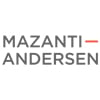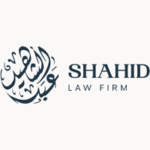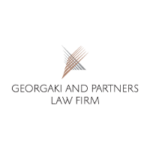-
What are the key rules/laws relevant to M&A and who are the key regulatory authorities?
In Türkiye, mergers and acquisitions (‘M&A’) are regulated by various laws related to different legal fields. The Turkish Commercial Code numbered 6102 (‘TCC’) includes detailed provisions regarding the transfer of commercial enterprises, company mergers, spin-offs, and conversions.
The Law on the Protection of Competition regulates notification obligations for M&A transactions and prior approval requirements for transactions exceeding the thresholds set by Communiqué Regarding the Mergers and Acquisitions Requiring Approval from the Competition Board (No. 2010/4).
Concerning the implications of tax law, Articles 18-20 of the Corporate Tax Law numbered 5520 (‘CTL’), as well as secondary legislation, address the tax aspects of M&A transactions.
Within the context of Article 23 of the Capital Markets Law numbered 6362 (‘CML’), which applies to publicly traded companies, capital market institutions, issuers, investors, and other entities engaging in capital market activities in Türkiye, mergers and spin-offs are considered as significant transactions and therefore subject to a special procedure.
Depending on the sector in which the company operates, approvals or notifications may be required from public authorities, including but not limited to the CMB, the Central Bank of the Republic of Türkiye (‘CBRT’), the Ministry of Trade, the Banking Regulation and Supervision Agency (‘BRSA’), and the Energy Market Regulatory Authority (‘EMRA’).
-
What is the current state of the market?
In 2024, although the number of M&A transactions in Türkiye decreased, there was a record increase in transaction volume. As of November 2024, a total of 424 M&A transactions were completed. Although the number of transactions as of November 2024 decreased by 62 compared to 2023, the total transaction volume increased by USD 2.8 billion, reaching USD 5.5 billion. As of November 2024, 346 out of the 424 completed transactions were conducted by domestic investors. Of the total transaction volume of USD 5.5 billion, USD 2.6 billion came from domestic investors.1 As outlined in the 2024 M&A Report of Deloitte2, the total transaction volume was recorded at approximately USD 8.5 billion. The 43% increase in transaction volume by domestic investors was the primary driving force of the market, whereas the transaction volume of foreign investors declined by 13%. Foreign investors accounted for 53% of the total transaction volume, while domestic investors contributed 47% of the market. The most active sectors in terms of transaction volume included internet and mobile services, technology, and manufacturing.
Footnote(s):
1 KPMG, “Mergers & Acquisitions Trends 2024: KPMG’s Perspective” [2024]
2 Deloitte, “2024 Mergers and Acquisitions Report” [2024]
-
Which market sectors have been particularly active recently?
According to the 2024 M&A Outlook Report3 (‘Report’) published by the Turkish Competition Authority, the sector with the highest number of M&A transactions involving Türkiye-based target companies was ‘computer programming, consultancy, and related activities’, with 23 deals. Regarding transaction value, the highest deal volume was recorded in the ‘retail trade conducted outside stores, stalls, and marketplaces’ sector.
The Report highlights the sectors that attracted the most global investment in 2024: (i) computer programming, consultancy, and related activities, (ii) the manufacturing of other food products, (iii) the activities of monetary financial institutions, (iv) the wholesale trade of agricultural raw materials and live animals, and (v) supporting activities for transportation. This indicates that the Türkiye M&A sector followed global investment trends in 2024.
Footnote(s):
3 Turkish Competition Authority, “2024 M&A Outlook Report” [2024]
-
What do you believe will be the three most significant factors influencing M&A activity over the next 2 years?
Three significant factors influencing M&A activity in Türkiye are macroeconomic conditions, sectoral trends, and digital transformation. Macroeconomic stability measures, including inflation control, monetary tightening, and fiscal regulations, are expected to shape investor confidence and capital allocation. Additionally, global and local sectoral trends, particularly in defence industry, technology, fintech, and renewable energy, drive transaction volumes as investors seek high-growth opportunities. Lastly, digital transformation plays a crucial role, with increased interest in artificial intelligence, e-commerce, and green investments fostering M&A activity across various industries.
-
What are the key means of effecting the acquisition of a publicly traded company?
Under Turkish law, making a tender offer for the acquisition of shares in a publicly traded company is not obligatory. However, depending on the circumstances, the acquirer may be required to make a tender offer after completing the transaction. Please see our explanations below under Q26 as per the mandatory tender offer.
-
What information relating to a target company is publicly available and to what extent is a target company obliged to disclose diligence related information to a potential acquirer?
In general, records published in the Turkish Trade Registry Gazette (‘TTRG’) contain fundamental corporate details such as articles of association and amendments thereof, registered capital, board members, and authorized signatories. For publicly traded companies, significant information is accessible through the Public Disclosure Platform (‘PDP’), including financial statements, annual reports, material event disclosures, shareholding structures, and corporate governance reports, as required by the CML and the Public Disclosure Communiqué (II-15.1).
A target company’s obligation to disclose diligence-related information to a potential acquirer depends on the nature of the transaction and the parties’ negotiations. In private M&A, disclosures are typically governed by non-disclosure agreements and the contractual terms agreed between the buyer and seller.
-
To what level of detail is due diligence customarily undertaken?
The extent of due diligence in M&A transactions varies based on deal size, industry risks, regulatory requirements, and whether the target is public or private. Heavily regulated sectors like banking, energy, and telecommunications require more detailed reviews, while smaller or low-risk deals may undergo a more focused examination. Some buyers opt for high-risk due diligence, prioritizing critical areas to make the process more cost-effective.
Due diligence typically includes legal, financial, and tax along with technical reviews, with its depth depending on the buyer’s risk tolerance and the agreed transaction terms. The materiality threshold can also be adjusted based on specific risks, legal costs, and other concerns.
-
What are the key decision-making bodies within a target company and what approval rights do shareholders have?
The governance structure of joint-stock companies (‘JSC’) is divided between the general assembly and the board of directors, with the general assembly acting as the primary decision-making body and the board of directors responsible for the company’s operations and management processes.
Under Article 374 of the TCC, the board of directors has decision-making power over all matters necessary to execute the company’s business, except for those matters expressly reserved for the general assembly under the law or the articles of association. The non-transferable duties and powers of the board of directors, which are set out in Article 375 of the TCC, include determining the company’s top management and the organizational structure, ensuring the proper functioning of accounting, appointing and dismissing managers and authorized signatories, supervising the company’s management to ensure compliance with laws, the articles of association, internal regulations, and the board’s written instructions, keeping statutory company books, preparing annual reports, and presenting them to the general assembly.
The general assembly, on the other hand, serves as the principal decision-making body. As per Article 408 of the TCC, amendments to the articles of association, including those for capital increase, election, remuneration, and dismissal of board members, as well as their release, appointment and dismissal of auditors, approval of financial statements, distribution of dividends and wholesale disposal of significant company assets fall within the exclusive authority of the general assembly. Furthermore, the General Assembly’s approval is required for mergers, spin-offs, and conversions, as well as for authorizing the board to acquire or accept company shares as collateral under Article 379/2 of the TCC.
For limited liability companies (‘LLCs’), the authorities of the general assembly and the board of managers closely resemble those in JSC, with minor differences.
-
What are the duties of the directors and controlling shareholders of a target company?
Board members are required to carry out their duties ‘with the diligence of a prudent manager’ and to act according to the principle of honesty while safeguarding the company’s interests. Board members are also subject to the duty of loyalty, which requires them to comply with the principle of honesty and to prioritize the company’s interests over personal gain. The duty of loyalty prohibits board members from engaging in conflicts of interest and obliges them to act in the company’s best interests at all times. The duty of loyalty is further detailed through specific legal prohibitions under the TCC. These include the ‘Prohibition of participation in negotiations’ under Article 393, the ‘Prohibition of transactions with the company and borrowing from the company’ under Article 395, and the ‘Prohibition of competition’ under Article 396.
In the case of a group of companies, the controlling company may not exercise its control in a manner that causes the subsidiary to incur losses unless such losses are either compensated within the same financial year or the subsidiary is granted an enforceable right to claim equivalent compensation, no later than the end of that financial year. In transactions carried out through the exercise of control, such as mergers, spin-offs, conversions, dissolutions, the issuance of securities, or significant amendments to the articles of association—where there is no justifiable reason for the subsidiary—shareholders who vote against such decisions in the general assembly and have their dissenting votes recorded in the minutes, may seek compensation for their losses from the controlling company.
-
Do employees/other stakeholders have any specific approval, consultation or other rights?
Turkish law does not recognize such a right for employees. Turkish law includes creditor protection regulations for mergers and spin-offs. According to Articles 174 and 175 of the TCC, companies undergoing spin-offs must announce the process thrice in TTRG. Creditors are invited to declare their claims and may request security for their receivables. Similarly, in mergers, if a sworn financial advisor does not confirm that creditors’ receivables are not at risk, the board of directors must submit a declaration to the trade registry, ensuring that these claims have been secured.
-
To what degree is conditionality an accepted market feature on acquisitions?
In Turkish M&A practice, closing generally occurs once all conditions precedent have been satisfied. Although simultaneous signing and closing may occur in smaller transactions or those not requiring regulatory approvals, it remains relatively uncommon.
Conditions precedent are typically included in share purchase agreements (‘SPA’). The common conditions precedent in Turkish M&A transactions includes governmental authorizations from the BRSA, CMB, or EMRA and Competition Board; third-party approvals; execution of other transaction documents; no material adverse change; fulfillment of specific representations and warranties.
-
What steps can an acquirer of a target company take to secure deal exclusivity?
In Turkish practice, signing a non-disclosure agreement (‘NDA’), memorandum of understanding (‘MOU’), or term sheets before negotiating final transaction documents in M&A is common. While MOUs and term sheets may not be entirely binding, it is standard practice to include binding provisions, particularly regarding confidentiality and exclusivity. These clauses ensure that sensitive information exchanged during preliminary discussions remains protected even if the transaction does not proceed and give a chance to a prospective buyer to seek indemnification if the exclusivity is breached. As a result, despite their generally non-binding nature, MOUs and term sheets in Türkiye often serve as an additional safeguard for deal secrecy and exclusivity alongside NDAs.
-
What other deal protection and costs coverage mechanisms are most frequently used by acquirers?
To safeguard the protection of the deal, exclusivity arrangements and break-up fees are commonly used in Turkish M&A practice. Expense reimbursement clauses may be included to manage costs, requiring a defaulting party to cover expenses made during the negotiations. Although it is not very common, some transactions also involve deposit payments, demonstrating commitment and acting as security. Moreover, material adverse change clauses enable the acquirer to renegotiate or exit the deal if unforeseen events significantly impact the target company.
-
Which forms of consideration are most commonly used?
In Türkiye, cash consideration is the most common form of payment in M&A transactions, particularly in private deals and public tender offers. However, share consideration (stock swaps) is also used in strategic mergers or corporate restructurings, allowing sellers to receive shares in the acquiring company. Mixed consideration, combining cash and shares, is sometimes preferred to balance liquidity and future investment. Additionally, earn-outs and deferred payments are used to mitigate risk and align payments with company performance.
-
At what ownership levels by an acquirer is public disclosure required (whether acquiring a target company as a whole or a minority stake)?
Under Article 198 of TCC, if an undertaking directly or indirectly acquires or reduces its shareholding in a capital company to 5%, 10%, 20%, 25%, 33%, 50%, 67%, or 100% of the share capital, such shareholding change must be registered with the trade registry and published in the TTRG. Until this registration and announcement obligation is fulfilled, all rights associated with the relevant shares, including voting rights, are suspended.
For publicly traded companies, as per Article 12 of the Material Events Disclosure Communiqué (II-15.1), when an individual or legal entity, acting alone or in concert with others, directly or indirectly reaches or falls below 5%, 10%, 15%, 20%, 25%, 33%, 50%, 67%, or 95% of the total share capital or voting rights of a listed company, a material event disclosure is required.
Furthermore, under Article 27 of the Communiqué on Shares (VII-128.1) and CMB decision dated 14.02.2023 and numbered 9/178, if a shareholder (i) holds 20% or more of the share capital, either individually or jointly with persons acting in concert, or (ii) holds privileged shares granting the right to appoint or nominate at least one member of the board of directors at the general assembly, and if such shareholder intends to sell more than 3% of the shares within a rolling 12-month period, it shall prepare a share sale information form, get the approval of the CMB and announced under the law.
-
At what stage of negotiation is public disclosure required or customary?
Privately held companies, which are not legally obliged to disclose contract negotiations, typically announce transactions publicly for promotional purposes only after the deal has been completed. However, under Article 15 of the CML, publicly traded companies must disclose to the public any information, events, or developments that may affect the value, price, or investment decisions regarding capital market instruments.
According to Article 5.5 of the CMB’s Guide on Material Events Disclosures, decisions made by the board of directors of the acquiring company to merge with another company, acquire a company, or appoint an advisor for such transactions does not require public disclosure unless their impact is concrete enough to affect the value, price, or investment decisions regarding capital market instruments.
Additionally, any decision made by shareholders or third parties to acquire shares in the issuer’s capital or for the issuer to acquire shares in other companies—such as making a tender offer, collecting shares or proxies, triggering a mandatory tender offer under CMB regulations, applying for an exemption from such an obligation, or submitting a tender offer application and its outcome—requires disclosure, as these actions may affect the value, price, or investment decisions regarding the issuer’s capital market instruments.
-
Is there any maximum time period for negotiations or due diligence?
Under Turkish law, there is no fixed maximum period specifically for negotiations or due diligence in M&A transactions. The negotiating parties and the deal’s complexity typically determine the length of these processes. Due diligence and negotiations can vary significantly depending on factors such as the type of transaction, the size of the companies involved, and the level of scrutiny required.
-
Is there any maximum time period between announcement of a transaction and completion of a transaction?
Under Turkish law, there is no fixed maximum time period between the announcement of an M&A transaction and its completion.
For public M&A transactions, as per Article 15 of the CML, the CMB imposes disclosure requirements to ensure transparency and protect investors. These requirements include the disclosure of financial statements, annual reports, changes in shareholding structure, and material events. If a transaction is subject to a disclosure obligation, the disclosure must be made immediately via the Public Disclosure Platform and the company’s website. Under Article 12 of the Material Events Disclosure Communiqué (II-15.1), it may be decided to postpone the disclosure of inside information in certain circumstances. At its own risk, the issuer may postpone the disclosure of inside information to the public to prevent damage to its legitimate interests, provided that it does not mislead investors and can ensure that this information is kept confidential.
-
Are there any circumstances where a minimum price may be set for the shares in a target company?
In private M&A transactions, there is no mandatory minimum price for acquiring shares, allowing the parties to negotiate and determine the purchase price freely.
For publicly traded companies, as per the Communiqué on Shares (VII-128.1) article 8(1), shareholders who hold at least 10% of the shares or have management control of the company at the time of the approval of the offering circular for an initial public offering are restricted from selling their shares on the stock exchange at a price below the initial public offering price for a period of one year following the commencement of trading.
-
Is it possible for target companies to provide financial assistance?
Under Article 380/1 of the TCC, legal transactions conducted by the company with another person to acquire its shares, through the provision of advances, loans, or security, shall be null and void. This provision prohibits joint stock companies from providing financial assistance to the purchaser when its shares are acquired. For the prohibition on financial assistance to be applicable, the following three conditions must be met simultaneously: (i) share acquisition, (ii) financial assistance, and (iii) financial assistance provided for the purchaser’s share acquisition.
-
Which governing law is customarily used on acquisitions?
In Türkiye, acquisitions are primarily governed by Turkish law, particularly the TCC, CML, and Turkish Code of Obligations (No. 6098). Turkish law is almost always applied for domestic transactions, as corporate governance, regulatory approvals, and compliance requirements must adhere to mandatory legal provisions.
In cross-border transactions involving a Turkish target, parties may choose a foreign governing law (mostly English or Swiss) for the SPA or Shareholders’ Agreement. However, mandatory Turkish legal provisions such as sector-specific regulations, tax laws, and regulations imposing specific registration requirements will still apply.
-
What public-facing documentation must a buyer produce in connection with the acquisition of a listed company?
Please see our explanations regarding the information form to be prepared in case of the mandatory tender offer under Q26.
-
What formalities are required in order to document a transfer of shares, including any local transfer taxes or duties?
In joint stock companies bearer shares are transferred simply by delivery to the acquirer and must be notified to the CRA and the Bearer Share Registration System as of 2021. Registered shares, on the other hand, require endorsement and delivery of the share certificates. The transfer must be recorded in shared ledger. In cases where shares are not materialized, a written share transfer agreement is sufficient to execute the transfer, but the transfer must still be recorded in the shared ledger of the company. It is a general principle that the transfer of shares does not require registration. However, Article 198 of the TCC stipulates that if specific share ratios are exceeded, this matter must be notified in the TTRG.
The process is stricter for limited companies as share transfers must be executed before a notary public, making notarization a legal validity requirement under Article 595 of the TCC. Additionally, the transfer must be approved by the company’s general assembly. Once approved, the share transfer must be registered with the Trade Registry and published in the TTRG. If the shares are represented by share certificates, these certificates should be endorsed and delivered to the acquirer, and the transfer must also be recorded in the company’s share ledger.
In Türkiye, real person sellers can benefit from income tax exemption on capital gains if the shares belong to a fully liable taxpayer company and have been held in printed form for over two years. For legal entities, 75% of capital gains from the sale of participation shares held for at least two full years is exempt from corporate tax under Article 5/1-e of the CTL. However, real persons’ sale of limited company shares is subject to income tax and may also be liable for Value Added Tax.
Regulatory approvals may also be necessary in some cases, mainly when dealing with sectors like banking or energy.
-
Are hostile acquisitions a common feature?
Turkish law does not explicitly regulate hostile acquisitions. Hostile acquisitions are uncommon in Türkiye due to the low free-float ratios of most publicly traded companies.
-
What protections do directors of a target company have against a hostile approach?
As outlined in response to Question 24, Turkish law does not include any regulations about hostile acquisition. However, certain general principles offer protections for directors:
Under TCC Article 369, directors have a duty of loyalty, allowing them to reject hostile bids if they harm the company’s long-term interests. Non-public JSC can also restrict share transfers under TCC Article 493, enabling directors to resist takeovers by refusing to register certain transactions. In public M&A, the CMB enforces mandatory tender offer rules under CML Article 26, intervening against unfair takeover attempts. Although Turkish law does not explicitly regulate poison pills, companies may use structural defences like golden shares or dual-class voting rights to deter hostile acquisitions.
-
Are there circumstances where a buyer may have to make a mandatory or compulsory offer for a target company?
Under Article 11 of the Tender Offer Communiqué (II-26.1), any person who, by any means, alone or together with persons acting in concert, directly or indirectly acquires shares or voting rights granting control over a publicly held company is obliged to make a tender offer to purchase the shares of other shareholders who held shares at the time the acquisition was publicly disclosed.
Even if there is no change in the shareholding structure of the publicly held company, a mandatory tender offer obligation may also arise when shareholders enter into private written agreements that result in the transfer of control.
Under the Tender Offer Communiqué (II-26.1), control is deemed to be acquired if a person, alone or with persons acting in concert (i) directly or indirectly holds more than 50% of the voting rights of a publicly held company or (ii) regardless of the percentage of voting rights, holds privileged shares granting the right to elect the majority of the board members or to nominate candidates for such positions at the general assembly.
In cases where the mandatory tender offer obligation arises, the acquiring party must apply to the CMB within six business days following the acquisition of control, along with an information form and other required documents prepared by CMB regulations. The information form approved by the CMB shall be published, and the tender offer must commence within six business days of the CMB’s approval.
-
If an acquirer does not obtain full control of a target company, what rights do minority shareholders enjoy?
Under Article 411 of the TCC, shareholders holding at least one-tenth of the capital in non-public joint stock companies and one-twentieth in publicly traded companies are considered ‘minority’ under the relevant legislation. In this context, shareholders holding shares corresponding to one-tenth of the capital of non-public companies or one-twentieth of the capital of public companies may benefit from the rights granted to minority shareholders under the law and/or the articles of association. In addition to the rights granted to minority shareholders by law, it is also possible to provide protective rights on a contractual basis by including provisions in the articles of association or the shareholders’ agreement, such as requiring unanimous consent for certain decisions or granting rights related to representation in management.
Under the TCC, minority shareholders are granted several rights to protect their interests. They have the right to information and examination, enabling them to access company records and financial statements. They may also request the convening of the general assembly and propose agenda items to ensure their concerns are addressed. Additionally, they have the right to request the appointment of a special auditor, which allows for an independent review of the company’s financial affairs. If there are justified reasons, minority shareholders can also file a lawsuit for the dissolution of the company. Furthermore, they are entitled to representation on the board of directors, ensuring their participation in management decisions. They can also request the issuance of share certificates, providing legal proof of ownership. Another key right is the ability to request the dismissal of the auditor and the appointment of a new auditor, ensuring transparency and accountability in financial reporting. Lastly, minority shareholders can demand the postponement of the general assembly meeting to evaluate financial statements, allowing them adequate time to assess the company’s financial health before making critical decisions.
-
Is a mechanism available to compulsorily acquire minority stakes?
In the case of a group of companies, if the parent company directly or indirectly holds at least 90% of the shares and voting rights of another group company, it may acquire the minority shareholders’ shares under Article 202 of the TCC under certain conditions. This right arises if the minority shareholders obstruct the company’s operations, act in bad faith, cause significant disruption, or behave recklessly. The purchase price for the minority shares is determined based on the available stock exchange value. If no stock exchange value exists, the price is set at the fair value or a value determined by a generally accepted valuation method.
In the case of limited companies, the company’s articles of association may provide for reasons under which a general assembly decision can expel a shareholder. Additionally, a shareholder can be expelled by a court decision in the presence of justifiable reasons.
Türkiye: Mergers & Acquisitions
This country-specific Q&A provides an overview of Mergers & Acquisitions laws and regulations applicable in Türkiye.
-
What are the key rules/laws relevant to M&A and who are the key regulatory authorities?
-
What is the current state of the market?
-
Which market sectors have been particularly active recently?
-
What do you believe will be the three most significant factors influencing M&A activity over the next 2 years?
-
What are the key means of effecting the acquisition of a publicly traded company?
-
What information relating to a target company is publicly available and to what extent is a target company obliged to disclose diligence related information to a potential acquirer?
-
To what level of detail is due diligence customarily undertaken?
-
What are the key decision-making bodies within a target company and what approval rights do shareholders have?
-
What are the duties of the directors and controlling shareholders of a target company?
-
Do employees/other stakeholders have any specific approval, consultation or other rights?
-
To what degree is conditionality an accepted market feature on acquisitions?
-
What steps can an acquirer of a target company take to secure deal exclusivity?
-
What other deal protection and costs coverage mechanisms are most frequently used by acquirers?
-
Which forms of consideration are most commonly used?
-
At what ownership levels by an acquirer is public disclosure required (whether acquiring a target company as a whole or a minority stake)?
-
At what stage of negotiation is public disclosure required or customary?
-
Is there any maximum time period for negotiations or due diligence?
-
Is there any maximum time period between announcement of a transaction and completion of a transaction?
-
Are there any circumstances where a minimum price may be set for the shares in a target company?
-
Is it possible for target companies to provide financial assistance?
-
Which governing law is customarily used on acquisitions?
-
What public-facing documentation must a buyer produce in connection with the acquisition of a listed company?
-
What formalities are required in order to document a transfer of shares, including any local transfer taxes or duties?
-
Are hostile acquisitions a common feature?
-
What protections do directors of a target company have against a hostile approach?
-
Are there circumstances where a buyer may have to make a mandatory or compulsory offer for a target company?
-
If an acquirer does not obtain full control of a target company, what rights do minority shareholders enjoy?
-
Is a mechanism available to compulsorily acquire minority stakes?





























